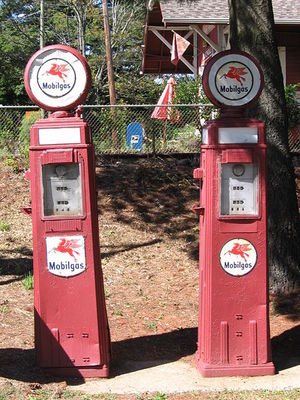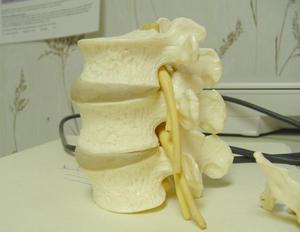Gastritis-Symptoms Of Gastritis
Gastritis is defined as the inflammation of the stomach lining. Gastritis is actually a group of problems, all causing this inflammation of the stomach lining. Some symptoms can wait before you hit the doctors, while trying a diet change and over the counter medicines. Others are far more serious and need to be addressed immediately by a doctor. No waiting, even if it is one AM, put a call in or go to ER. Those more serious symptoms are starred.
Symptoms:
Gas
Indigestion
Nausea
Lack of appetite
Pain* could be all different things depending on where you have it. Any pain, anywhere in your stomach area, if continued or you can’t follow your daily activities should prompt you to call the doctor. Sudden severe pain-ER visit is in order.
Vomiting* Call to doctor or service If it has continued with no relief
Dark or black stools* Immediate call to doctor or service
Vomiting of blood or coffee ground like substance**Immediate visit to ER
Gastritis-Some Causes Of Gastritis
Alcohol
One of the most common culprits in causing Gastritis is alcohol consumption. If you don’t already have gastritis, for alcohol to actually cause it would take heavy, not occasional drinking. However, if you already have gastritis, chronic, alcohol will immediately inflame the lining of your stomach. The reason alcohol causes gastritis is because it causes excessive acid which erodes the stomach lining. If alcohol is the only reason for the gastritis, it can easily be healed by stopping consumption. Since it takes excessive use to become this bad, rehabilitation may be needed in order to stop use. This type of gastritis needs doctor care to ensure the damage to the stomach heals. Also, if there is excessive drinking there can be serious with drawl such as seizures and even hallucinations, so the patient needs to be under a doctors care during the quitting phase.
NSAID’s
NSAID’s cause damage to the stomach in two ways. The first way is the chemicals damage the gastric mucosa, the protective layer of the stomach.The second way is it reduces the levels of prostaglandins, which causes an increase of acids, destroying the protective layer of the stomach.
A study was done in the arthritis clinic of NRS Medical College and Hospital. The purpose of this study was to see the effect of long-term usage of NSAID’s and their effect on the stomach. According to the site referencing the study : “…fifty two percent of the patients studied showed endoscopic evidence of mucosal damage of the upper GIT only eight percent of all the patients complained of symptoms suggestive of gastritis…” all of these patients were on NSAID therapy between one and three years. This is why it is so important to be followed by a gastroenterologist if you need to take these medicines long term.
If these medicines cannot be avoided, the GI can speak to you about change in diet and lifestyle habits to reduce the effects of these medicines. As shown by the study, although the patient may not even feel the changes in the stomach or show outward signs of gastritis, these medicines can still be destroying the lining of your stomach. Some examples of NSAID’s would be Ibuprofen, Mobic, Naproxen and Aleve.
Bacterial Infections
Helicobacter Pylori is a bacterial infection that can cause gastritis. This infection can cause the protective lining in your stomach to break down, thus causing gastritis. This effect does not happen to everyone that carries this bacteria and the reason for this is unknown. The amount of people believed to be infected by this bacteria is as high as almost half the population and can be passed from person to person. Only a small amount of infected people end up with gastritis from it though.
Stress
Stress causes an increase in the acids in your stomach, and therefore damage to the lining of the stomach, and eventually ulcers.
There are many other conditions that can cause gastritis, but the above are the most common.
Gastritis-Diagnosis Of Gastritis
Diagnosis includes a complete medical history, as there are different types of gastritis, caused by different things. Once this is completed, there are many different tests, all are up to 90% accurate. There is a urea breath test for Helicobacter Pylori. There are also blood tests to detect this. A CAT scan with barium can be used to find abnormalities in the stomach. Gastritis can be confirmed through endoscopy. Another important test that can be done during the endoscopy is a biopsy. This is important as ulcers and Helicobacter Pylori can become malignant.
Gastritis-Treatment of Gastritis
Treatment depends on the cause of the gastritis. If it is caused by medications or alcohol, once these offenders are removed, the symptoms typically disappear. Along with removal of these substances, medications such as acid relievers to promote healing. A bland diet is also typically incorporated into treatment to “rest” the stomach and promote healing. If the gastritis is caused by H. Pylori infection, the doctor will need to treat the infection with antibiotics, typically a combination of two. Medications that block acid secretion in your stomach are also used. These medications are called proton pump inhibitors. Along with these three medications, a medicine which will coat the stomach is also used, such as Pepto-Bismal.
Treatment by a doctor is important if you have gastritis. Depending on the severity, it doesn’t necessarily lead to an ER visit, but it must be checked out by a doctor. This is a very uncomfortable condition and if left untreated, it can lead to malignancies. Gastritis is very treatable and the outlook is great as long as you follow doctor’s orders.
http://www.nlm.nih.gov/medlineplus/ency/article/001150.htm
http://medind.nic.in/imvw/imvw320.html


